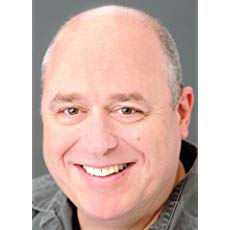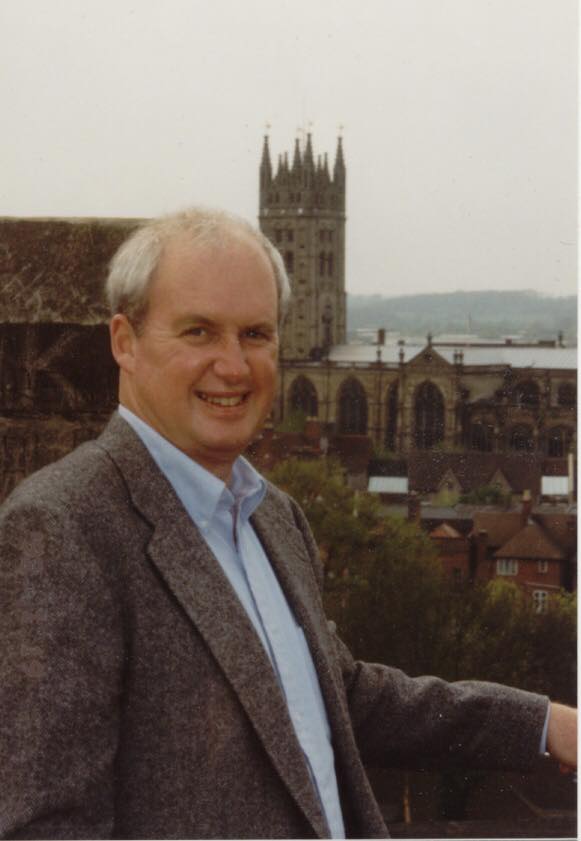
At what point did you know you wanted to be a writer full time? Describe the journey.
Writing is in my DNA: I was first published professionally when I was fourteen. I’ve been writing short stories and plays since then, running a theatre company at Oxford university.
Taking it full time with novels was partly about the best way to do this around the care of my disabled son and partly about the most exciting way to tell the story of Light (the vampire in my first Rebel Vampires series!).

What were some of your influences that led to your Rebel Vampires and Rebel Angels series?
I write anti-heroes: the rebels and misfits who have to battle not simply to save the world but with their own demons, pasts and to understand what home, family, and love means. I also wanted to write the beautiful monster who understood their loss of humanity but tried to hold onto it…or create something new.
I’ve always loved Anne Rice’s Prince Lestat because she creates such a complex monster who also examines humanity. Dostoevsky and Bulgakov both examine the misfit and had a big impact on me. For the anti-hero, Heathcliff in Wuthering Heights taught me that there could be a different type of romantic love…and that relationships could be passionate, difficult, and haunting.
For both Rebel Vampires and Rebel Angels, the chief motivation was to create the ultimate British anti-heroes. In Rebel Vampires, Light is a vampire with the British flavour of James Dean. In Rebel Angels, there’s a mix of Buffy and Lucifer for the two main leads!
Your writing is quite different than much of the urban fantasy and Paranormal Romance output. How would you describe your work for those that generally wouldn’t read those genres?
It’s been described as literary. I’ve won a number of awards for both series possibly because of this. It’s also addictive and fast paced, but within that there’s beauty, emotions, and real character development.
Because I wrote plays before, I try to focus on the realism even within the fantasy: there are no damsels in distress, nobody’s perfect, and there’s dark humour…because there’s always light next to the darkness!
Violet in your Rebel Angels series is very much an anti-hero. How do you feel about writing characters with shades of gray as opposed to true protagonists? Do you find people respond well to them ?
Anti-heroes are true protagonists, they’re simply not heroes from day one!
My anti-heroes always go on redemptive journeys, however, which means that of course in the first book they’re in the deepest shade of grey or there wouldn’t be any story arc. This makes the final book in the series the most epic and emotionally charged!
With an anti-hero, a reader needs to trust the author. It’s harder to write than a simple hero, but I’ve never been excited by characters who don’t question or challenge the world around them, with no dark past.
I’ve always been interested in those who struggle, feeling themselves outsiders or alone. Because I think that we’ve all felt that at some time. I identify with Loki or Iron Man over Captain America (and even he has his anti-hero periods!).
I’ve found that most readers have fallen as in love as I am with my main characters. Their struggles and NOT being perfect, has struck a deep chord. Some readers have found a female anti-hero a bigger challenge than a male one, simply because these are less frequently found in books (there are plenty in movies and TV). But I’m a female rebel…and we need more of them!
You have a very rabid fan base. What we have described as super fans. How does that make you feel as writer? Does it ever present challenges?
I love my readers! I have a street team and secret fan group called Rosemary’s Rebels. They’re awesome! Readers reviewing, recommending, and by word of mouth is how my books reach new readers. I’m grateful for everything my readers do.
Your prose is often highly abstract and far more literary than a great deal of Fantasy. How did you come up with this unique writing style?
I know I have a unique writing voice. It’s not something I developed, it’s simply how I write. I see the scenes playing in my head (Tarantino has described this) and am writing down what I see. I’m also very sensory: this means that the colours, scents, and textures of a scene are right there: so, a reader is immersed in them because I am.
What do you hope readers will take from your work? Is there an overall theme in your writing that you try to convey to fans of your work?
I’m a subversive artist, which means that I challenge the small lies that every society has: money makes you happy, disabled people can’t be successful, women can’t be powerful… I don’t ever ‘preach’ to readers though, or expect them to take a message. But in each book I challenge something.
Vampire Huntress is about knife culture in London. Vampire Princess is set in a matriarchal society and is about gender. But you can just read them as exciting angel and vampire books!
The main themes of my series are: freedom, choice, and difference. If there was anything that I would *secretly* love to convey it’s these three.
As an author with multiple series, do you find it a challenge to move on to a new series as opposed to remain in the world of one series?
This is something that I’m doing right now, although in the REBEL VERSE, the characters, setting, plot are different but it’s the same overall world.
I find it hard to stop writing the couple of main characters within a series because I love not simply them but the dynamic of their relationships. I have fun writing the dialogue between them and always have extra scenes I’m craving to write.
BUT there’s a lot of excitement around planning a new series as well and creating the characters… So, it’s like a break up and then dating again!!
Describe one of the flagship experiences in your writing career..the one that made you say..”This is why I do this”
I have this experience every time I’m writing a first draft. Then when I get the final copy of a book in my excited little hands!
Flagship wise…it could be the ‘bestseller’ tag next to my first book BLOOD DRAGONS, the first award it received (the Wishing Shelf Book Award), or maybe hitting USA Today Bestseller.
I honestly can’t say because I THINK it was probably getting the copy of the magazine that my first short story was published in when I was fourteen!
How important is interaction with your readers to you?
This is EVERYTHING to me! I write for my readers and their responses to my series, messages, fan art, and support has been amazing! To know that my books have moved readers or become important to them makes me happy dance as an author.
I have a newsletter, and a fan group, as well as can be contacted via FB and contact form on my website. Readers or book groups are always welcome to chat with me.
How often do you write and when you are not writing, what takes up most of your time?
I write every day (or plan/research/edit, depending what stage I’m at!).
If I have any time NOT writing… I spend it with my family and friends, listening to music (I’m a total music fanatic, which you can see in my books…), watching anime or movies (because I’m also a major movie fan), or doing events.
If you could offer a piece of advice to aspiring authors, what would it be ?
It should be not to listen to advice – but to have confidence in yourself!!
BUT… the one thing that made all the difference to me: I wrote a number of books in different genres. I couldn’t decide what to publish, until I thought long and hard about what I WAS PASSIONATE ABOUT READING…as well as writing for the rest of my life. Then it was obvious.
Write what you’re most passionate about because if you’re not totally in love with your book no one else will be and certainly not long term.

With book 5 of Rebel Angels, Vampire God just around the corner can your give us an idea of what will come next for you?
Vampire God is releasing on the 28th March. It’s exciting to have the grand finale of REBEL ANGELS out, so the entire series will be complete! They’ll also be releasing on audio book.
After that, I’m writing REBEL WEREWOLVES – a trilogy standalone spin off from the series, which is set in the same world but instead of London, it’ll be in Oxford (where I live!).
This is an idea I’ve had for about five years, so I’m excited to write it. It’ll be releasing late Summer!
AUTHOR BIO
USA TODAY BESTSELLING AUTHOR ROSEMARY A JOHNS – Addictive Fantasy for Rebels
Rosemary A Johns is the USA Today bestselling and award-winning author of urban fantasy series REBEL ANGELS, REBEL VAMPIRES, and other REBEL worlds coming soon!
#1 in Vampire Suspense #1 in Mythology & Folk Tales #1 in Comedy Horror
Rosemary writes snarky angels, sexy vampires, and epic battles.
Winner of the Silver Award in the National Wishing Shelf Book Awards. Finalist in the IAN Book of the Year Awards. Runner-up in the Best Fantasy Book of the Year, Reality Bites Book Awards. Honorable Mention in the Readers’ Favorite Book Awards.
Shortlisted in the International Rubery Book Awards.
A music fanatic and paranormal anti-hero addict, Rosemary is also a traditionally published short story writer. She studied history at Oxford University and ran her own theatre company. She’s always been a rebel…
Sign up for Rosemary A Johns’ VIP Newsletter and receive the free story “All the Tin Soldiers”, plus news of hot releases and promotions: https://mailchi.mp/rosemaryajohns/subscribe-rebel-newsletter
You can visit Rosemary A Johns online at her fantasy website: https://rosemaryajohns.com
Follow here:
https://www.amazon.com/Rosemary-A-Johns/e/B01JOJVTNE
https://www.bookbub.com/authors/rosemary-a-johns
https://www.goodreads.com/author/show/15571684.Rosemary_A_Johns
Rosemary’s Rebels Street Team and Secret Fan Group: https://www.facebook.com/groups/698811356958470





“Baroque” Writing
“Baroque” Writing by L.E. Modesitt Jr.
The other day I was reading a fantasy novel that had been recommended to me by someone whose judgment I trust. I had to force myself to finish it. It wasn’t that the technical aspect of the writing was bad. The writer has a good command of mechanics and style. It wasn’t that the plot was trite; it wasn’t. The concept of the magic was good, and it seamlessly fused magic and post-Renaissance/early industrial-level technology.
So why did I have so much trouble finishing the book?
The plot reminded me of Baroque music, over-ornamented and excessively twisted and complex. Now, I know… lots of readers like those kinds of books and their plots. I’m not one of them, and probably the reason why is because I spent too much time in Washington, D.C., and national politics.
To put it bluntly, involuted and convoluted schemes don’t usually work in real life. First is the simple problem that not even three people can keep a secret very long, let alone the number required to orchestrate a complex conspiracy. Second, the more moving parts anything has, especially if those moving parts are people, the greater the chance that something will go wrong, in fact, that many things will go wrong.
Then there’s the problem that when things get really ornately complex, more gimmicks or gadgets are needed, especially if there’s an evil genius or power that wants to make people act against their self-interest [which there is in this book], and that’s also not the way matters work in real life. People do shady things out of greed, the lust for power or sex, or because it gives them a twisted kick. It’s dreadfully straight-forward. The twists in life come from the interaction of comparatively direct motivations that don’t allow everyone to get what they want.
When an author over-complexifies, so to speak, he or she loses me. Now, that’s just me. I don’t dislike complexity, but when I write, I want the complexity to come out of the interaction of human motives and drives.
Maybe that’s why I also generally prefer Classical or Romantic period music, but I say generally, because far from all Baroque music is over-ornamented, unlike Baroque-plot books.